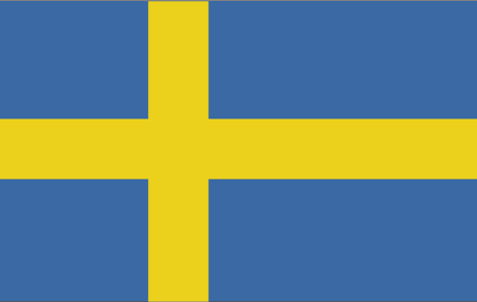
A military power during the 17th century, Sweden has not participated in any war for almost two centuries. An armed neutrality was preserved in both world wars. Sweden's long-successful economic formula of a capitalist system intermixed with substantial welfare elements was challenged in the 1990s by high unemployment and in 2000-02 and 2009 by the global economic downturns, but fiscal discipline over the past several years has allowed the country to weather economic vagaries. Sweden joined the EU in 1995, but the public rejected the introduction of the euro in a 2003 referendum.
iron ore, copper, lead, zinc, gold, silver, tungsten, uranium, arsenic, feldspar, timber, hydropower
arable land: 5.8%
permanent crops: 0.02%
other: 94.18% (2011)
9,723,809 (July 2014 est.)
country comparison to the world: 91
indigenous population: Swedes with Finnish and Sami minorities; foreign-born or first-generation immigrants: Finns, Yugoslavs, Danes, Norwegians, Greeks, Turks
Lutheran 87%, other (includes Roman Catholic, Orthodox, Baptist, Muslim, Jewish, and Buddhist) 13%
Swedish (official), small Sami- and Finnish-speaking minorities
definition: age 15 and over can read and write
total population: 99%
male: 99%
female: 99% (2003 est.)
Stockholm
constitutional monarchy
6 June 1523 (Gustav VASA elected king)
National Day, 6 June (1983); note - from 1916 to 1982 this date was celebrated as Swedish Flag Day